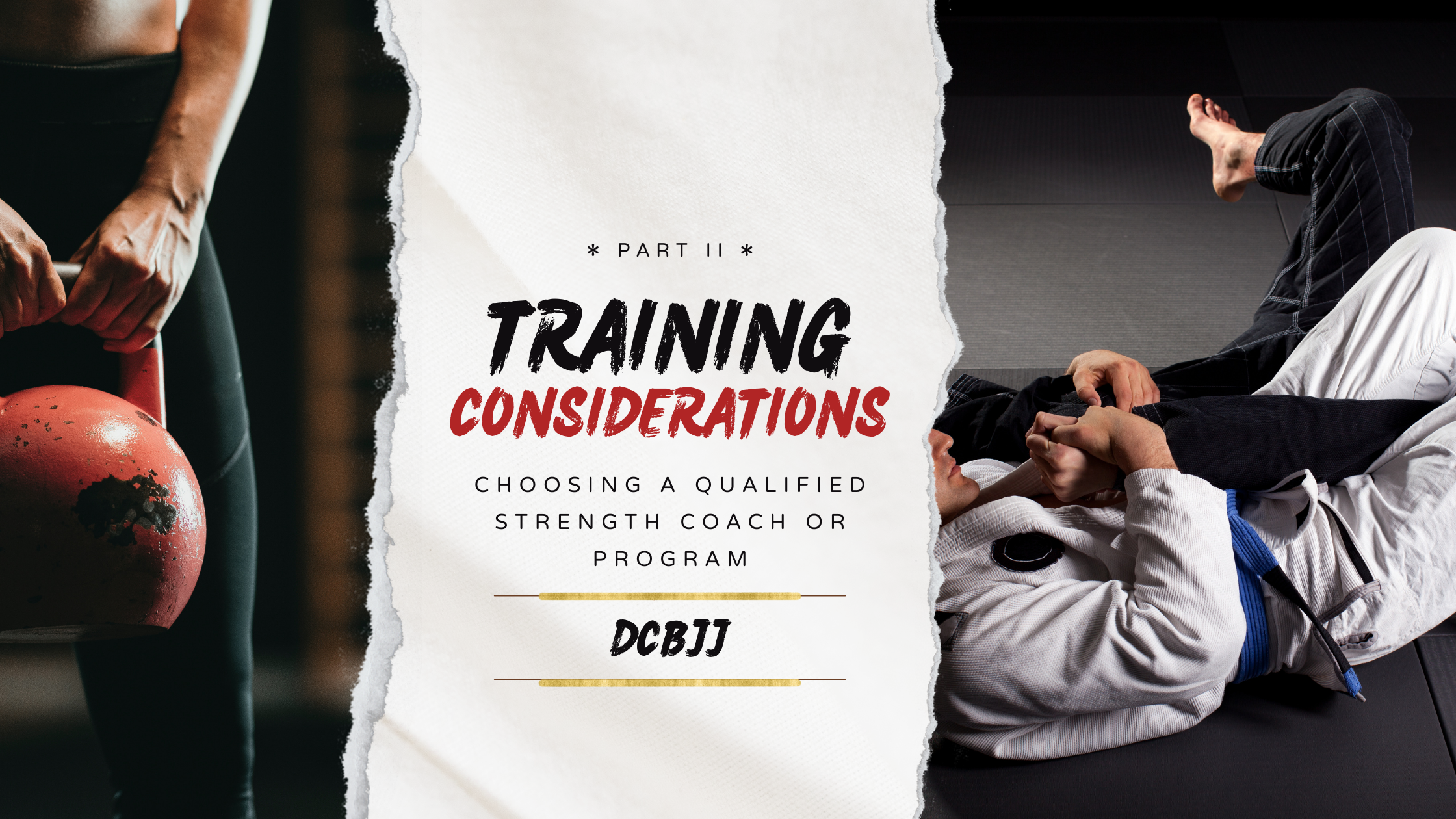Part II - How to Choose a Qualified Strength Coach
In the first part of this blog, we discussed why we think you should be working on your strength as an essential part of your Brazilian Jiu-Jitsu training. But now that you’re on board with the idea, you may be wondering things like:
“What kind of program do I need?”
“What should it include?”
“How do I get someone to help me with this?”
Here are some additional considerations when seeking the proper training.
A qualified, certified trainer is essential for achieving strength goals for Brazilian Jiu-Jitsu (BJJ) for several reasons:
A certified trainer has the knowledge and expertise to design a training program, but a training program written specifically tailored to the needs and goals of BJJ practitioners may require some additional vetting. Does your trainer understand the energy system and biomechanical needs of the sport? An experienced professional can ensure that exercises target the muscle groups and movement patterns most relevant to BJJ.
Safety
Weight training, if done improperly, can lead to injuries. A qualified trainer can teach proper exercise techniques, ensure correct form, and provide guidance on appropriate weights and progression. This reduces the risk of injury and ensures that training is conducted safely.
Individualization
An experienced coach can assess an individual's current fitness level, strengths, weaknesses, and any existing injuries or limitations. Based on this assessment, they can develop a personalized training program that addresses the specific needs of the individual, whether it's improving overall strength, addressing muscular imbalances, or targeting specific areas of weakness relevant to BJJ.
Monitoring
A qualified coach or trainer can track progress over time, adjusting the training program as needed to ensure continued improvement. They can measure strength gains, assess movement quality, and make adjustments to optimize performance and prevent plateaus.
Accountability
Working with a trainer provides accountability and motivation, which can be particularly beneficial for maintaining consistency and sticking to a training regimen. A trainer can provide encouragement, support, and guidance, helping individuals stay focused and committed to their strength training goals.
Maximized Results
A trainer must optimize training variables such as volume, intensity, frequency, and exercise selection to maximize strength gains and performance improvements. They can also provide guidance on other aspects of training, such as nutrition and recovery, to ensure that individuals are taking a comprehensive approach to their fitness goals.
If possible, having a trainer familiar with BJJ as well as qualified in strength and conditioning, can offer additional benefits like the integration of important pillars of both athletic endeavors and an awareness of potential injuries unique to jiu-jitsu practitioners.
Keep this list in mind when in search of a qualified, certified trainer. Choosing the right one can enhance the effectiveness of strength training for BJJ, helping you achieve your goals safely, efficiently, and effectively.

